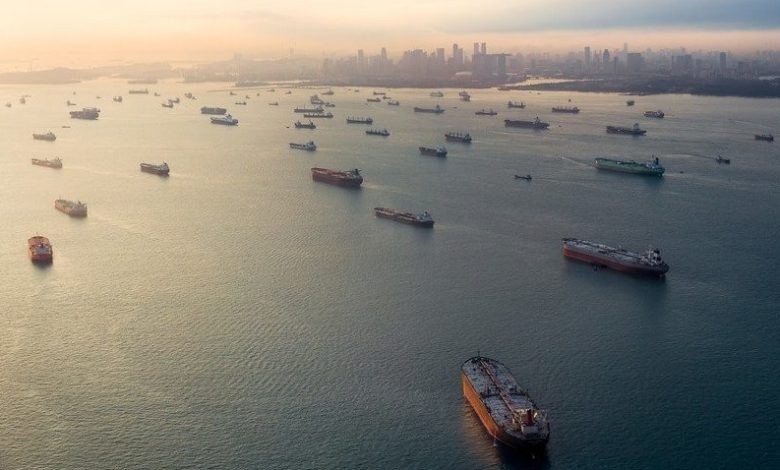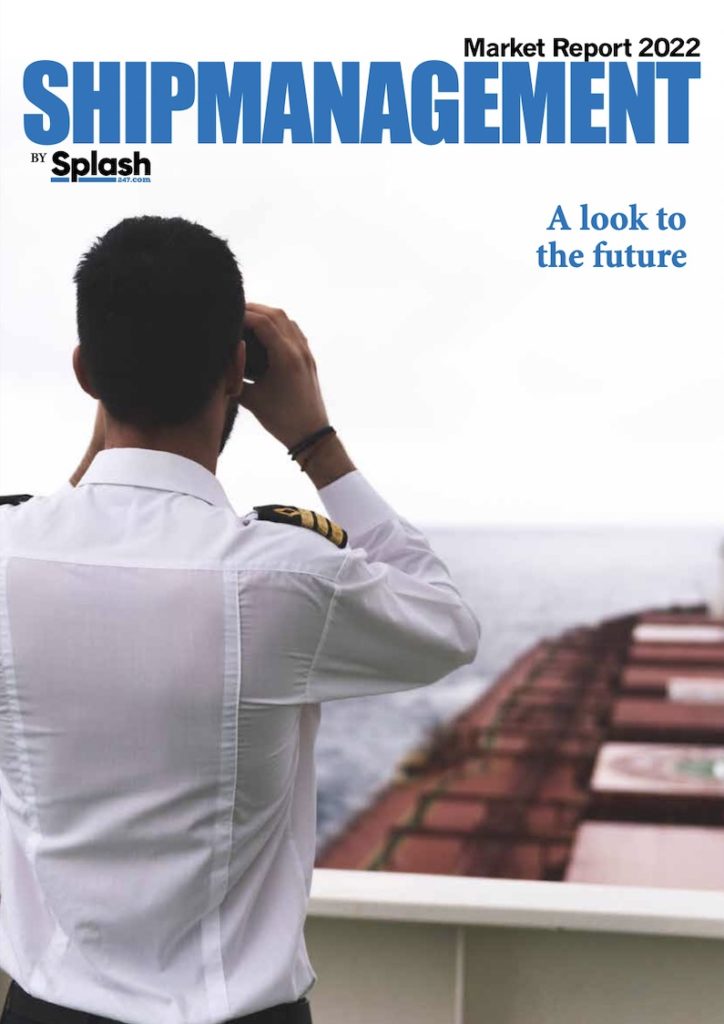Shipmanagers and the need to be speaking from the same page

Shipmanagers bristle at their lack of representation in handling the big issues facing shipping. How to change this impasse?
Shipmanagers have been bristling of late, annoyed that they do not have a louder enough voice on international shipping matters. Shipmanagers have so much to offer when it comes to regulatory debate yet they are often not at the top table.
Mark O’Neil, who heads up Columbia Shipmanagement as well as InterManager, the third-party shipmanagement organisation, has been leading the charge to get his peers seen and heard.
“Shipping itself has no single voice, nor even a single language,” O’Neil tells Splash. “It is absolutely vital that we fight for our place at the high table of the shipping industry stakeholders and that we then employ our huge experience, reach and knowledge across the shipping sector – and outside the sector into other sectors – for the benefit of shipping as a whole.”
Shipping itself has no single voice, nor even a single language
As InterManager president, O’Neil has been calling repeatedly for shipping to have one voice. That voice, he says, need not stem from one individual or body, it can have a multitude of sources and accents and dialects. But, he stresses, there must be focus, vision and consensus at least on the important macro issues.
“To fail in this endeavour,” O’Neil says, “will unfortunately consign shipping and shipping interests to a mere footnote in the history of environmental and transportation development.”
The CEO of the Wallem Group, John-Kaare Aune, agrees with O’Neil, telling Splash: “We do believe our knowledge could be better utilised by regulators because when it comes to regulatory affairs, shipmanagers represent a very valuable but largely untapped resource.” The issue, he says, could be the extent to which individual shipmanagers want their voices to be heard.
Vinay Gupta, the managing director of Singapore-based Union Marine Management Services (UMMS), suggests that shipmanagers are heard but in forums organised and co-ordinated by other industry partners – such as classification societies, flag states, oil majors and shipowners.
“There is no real consortium that binds shipmanagers for a meaningful discussion and sharing of ideas, problems and possible solutions,” he says, something that he believes is in no small part down to the highly competitive “zero sum game” that is shipmanagement.
“It is but natural to protect one’s interest even if that means running a slightly inefficient industry,” Gupta says, adding that with more data coming in and transparency becoming the order of the day, managers will be driven to come together and form alliances where interdependence works for ensuring survival and growth.
Shipmanagers and owners are primarily represented by industry bodies like Intercargo, Intertanko, InterManager and BIMCO. However, such representation does not come cheap, as Vinod Sehgal, CEO of SeaQuest Shipmanagement, points out, going on to observe that managers have little representation at the International Maritime Organization (IMO) and industry guiding bodies such as OCIMF and RightShip.
Coming in for specific criticism is InterManager, labelled a “broadly inactive” organisation by Sanjeev Verma, the managing director of Hong Kong’s Landbridge Ship Management.
“How often do you hear that a shipmanager is invited for a technical discussion when discussing new regulations?” muses Verma, adding: “We need a strong manager’s organisation where people from shipmanagers represent the managers’ concerns to the IMO level, and technical challenges are well taken into account when drafting new regulations.”
Pandemic splutters
Bjoern Sprotte, the CEO of shipmanagement at V.Group, suggests that the pandemic and resulting repatriation crisis showed that shipmanagers do not have a strong enough voice.
“There is a need for a cohesive, strong voice that will drive change with the regulators,” Sprotte says.
“There has been huge disparity and inconsistencies between the approach of governments across the globe. This lack of collaboration and the constantly moving goalposts has made the shipmanagement role more challenging in recent years.”
“The problem during this pandemic has been projecting our voice beyond shipping, that is where we have failed. That is where shipping in general has failed,” says Rajesh Unni, the founder and CEO of Synergy Marine Group. The sector’s collective message and voice when dealing with regulators would carry more strength if larger shipmanagers cooperated more, he argues.
The problem during this pandemic has been projecting our voice beyond shipping
The pandemic has actually brought managers together to address the challenges which some industry bodies found difficult to address, says Sean McCormack, the shipmanagement director at Northern Marine.
“This has broken down perceived historical barriers and brought managers closer together allowing them to collectively come to the table without the need for some industry bodies,” says McCormack.
Richly represented
Arguing that managers are actually well represented is Bjorn Hojgaard, the CEO of Anglo-Eastern, who points out that shipmanagers form a major voice in national shipowner or shipping associations, and chambers. And through these, shipmanagers have a voice that is heard at the International Chamber of Shipping, the umbrella organisation for national shipowners. Shipmanagers are also “richly represented” at the likes of BIMCO and Intertanko, Hojgaard says.
“Don’t forget,” Hojgaard says, “shipmanagers are representing a pool of shipowners, and the desires or needs of shipmanagers are rarely that different from what shipowners are advocating.”
What’s important, he argues, is that shipmanagers use their voice, and that they are not afraid of having an opinion based on experience, and arguing that opinion.
Kishore Rajvanshy, the managing director of Fleet Management, agrees with his fellow Hong Kong counterpart. Shipmanagement’s voice on the international stage is changing, he insists, pointing to BIMCO’s decision to introduce a new shipmanager advisory panel, something that is currently chaired by Rajvanshy.
“As shipmanagers we are uniquely positioned in the value chain in that we have both a bird’s eye view of the industry while also being intimately aware of the key issues and challenges – and that runs deep into the technical know-how,” Rajvanshy says.
Public engagement
Forget being seen at shipping’s top table, the court of public opinion is far more worthwhile investing time to engage and win over, maintains Andrew Airey, managing director of Bangkok-based Highland Maritime.
“Fully engaging with the wider public is probably a much quicker way to make a difference on international shipping matters,” Airey believes, arguing that a more positive understanding of the industry by the general public would bring the strongest ability to sway the governments that regulate shipping.
“If we want more realistic, better informed government policy, perhaps we must better inform the public, across all media and build much greater trust and respect for what we actually do every day,” Airey concludes.
This is one of the articles from Splash’s Shipmanagement Market Report, a 72-page magazine published this month. Splash readers can access the full magazine for free by clicking here.


Ok. Now they want visibility? A part of the problem was that lack of transparency served the industry for so long. Ship management was a very big part of keeping ownership secret, driving down standards, willingness to manage substandard owners. The more conscientious ones have to drive the clean up of their profession before they start making noise about being herd. Same thing for owners. COVID-19 seems to have brought all types of viruses to the fore and many in shipping!
The only way ship managers will get a voice is when they talk with each other with a common agenda.
It is an industry of BIG egos!!!!